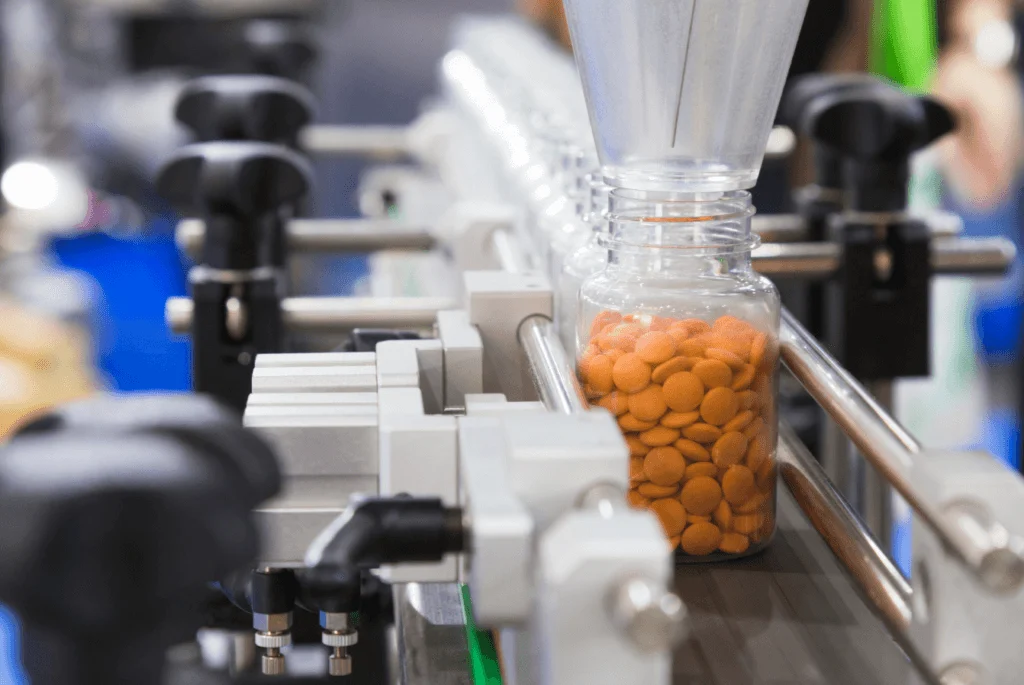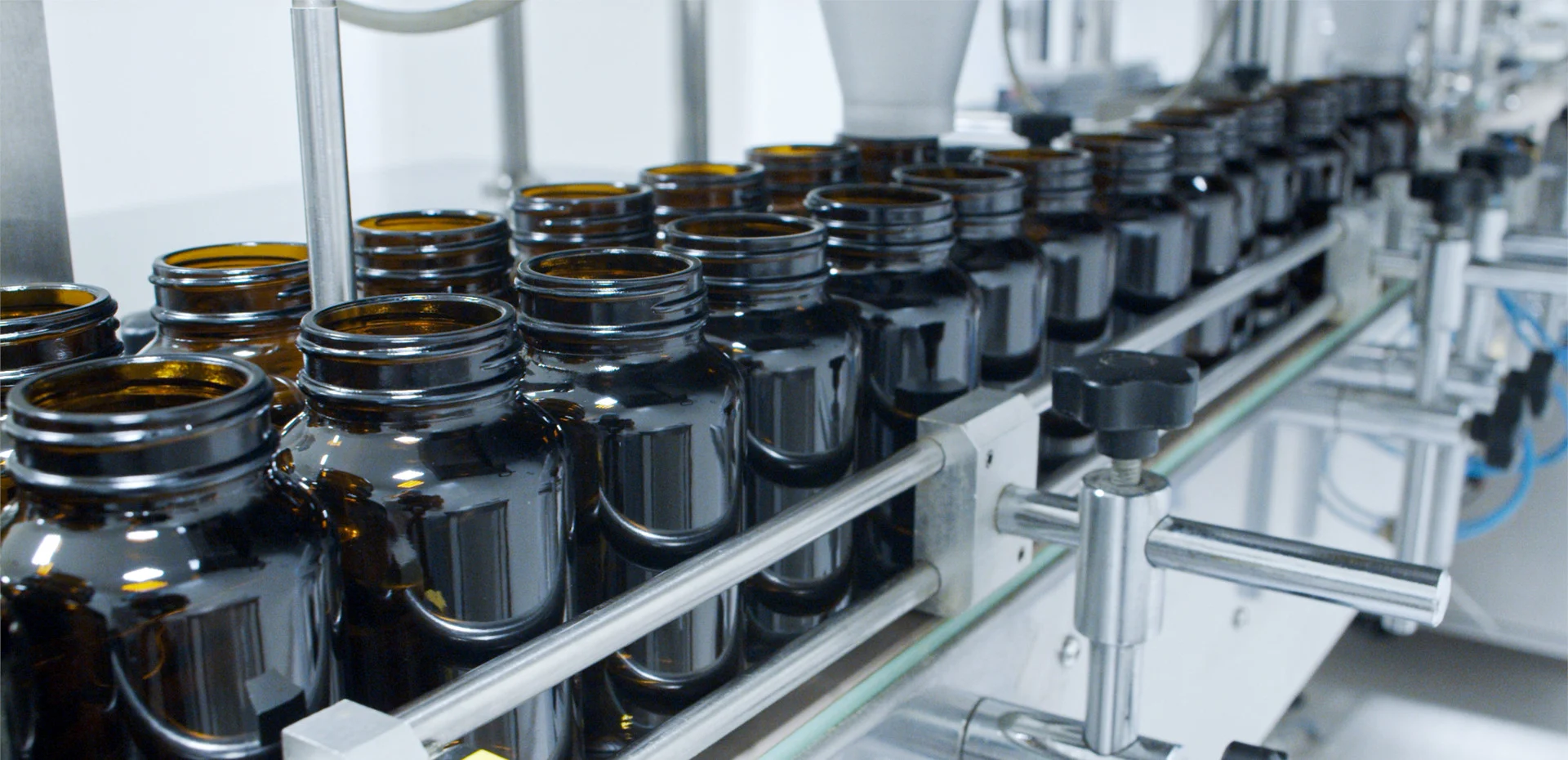The health and wellness market is booming. You have a brilliant idea for a supplement that could genuinely help people. But a great idea is just the starting point. The most significant hurdle for most aspiring brands is turning that concept into a physical, high-quality, and compliant product ready for your first customer. How do you navigate the complexities of sourcing, production, and regulation without a multi-million dollar factory?
The answer lies in a strategic partnership with a contract supplement manufacturer.
This guide is your comprehensive roadmap. We’ll walk you through the entire journey, from understanding the core concepts to choosing the perfect partner and launching your brand. Forget the confusion and overwhelming details; by the end of this article, you’ll have the clarity and confidence to move forward.

What is a Contract Supplement Manufacturer? A Core Concept
At its simplest, a contract supplement manufacturer is a specialized company that produces supplements on behalf of other brands. You provide the product specifications, and they use their facilities, equipment, expertise, and certifications to bring it to life. Think of them as your on-demand production partner.
Contract Manufacturing vs. Private Labeling: What’s the Difference?
It’s easy to confuse these two terms, but the distinction is critical for your business model.
- Contract Manufacturing: This is a bespoke service. You bring your unique, custom formula to the manufacturer. You own the intellectual property (the formula), and they are the hands that create it for you. This path offers maximum brand differentiation and control over your product.
- Private Labeling (or White Labeling): Here, you choose from a catalog of pre-formulated, market-tested products that the manufacturer has already developed. You then put your brand’s label on it. This is a faster and often cheaper way to get to market, but your product won’t be unique.
For brands looking to build a long-term, unique identity, contract manufacturing is the definitive choice.
5 Key Benefits of Partnering with a Contract Manufacturer
Why not just try to build your own facility? For 99% of new and growing brands, partnering with a contract manufacturer is the smarter strategic move. Here’s why:
- Cost-Effectiveness: The initial investment in manufacturing equipment, facilities, and specialized staff is astronomical. Contract manufacturing converts this massive capital expenditure into a manageable operational cost.
- Access to Expertise: Top-tier manufacturers have teams of food scientists, chemists, and regulatory experts. You’re not just buying production time; you’re gaining access to years of accumulated industry knowledge.
- Quality Assurance & Compliance: Reputable manufacturers operate out of GMP (Good Manufacturing Practices) certified facilities. They already have robust quality control systems in place, ensuring your product is safe, pure, and compliant with FDA regulations.
- Speed to Market: They have established supply chains and efficient production processes. This allows you to launch your product in a fraction of the time it would take to build your own operation from the ground up.
- Scalability: As your brand grows, your production needs will change. A good contract partner can easily scale production from a small initial run to hundreds of thousands of units without you needing to invest in new equipment.
The Step-by-Step Process: From Formulation to Fulfillment
Understanding the manufacturing journey demystifies the process and helps you plan effectively. While every project is unique, the core steps are consistent.
Step 1: Ideation & Formulation
This is where it all begins. You might have a precise formula developed by a nutritionist or a clear concept of what you want to achieve. You’ll work with the manufacturer’s R&D team to refine your formula, select the exact forms of ingredients (e.g., Magnesium Citrate vs. Magnesium Glycinate), and finalize the dosage for your desired effect.
Step 2: Sourcing & Procurement
Once the formula is locked, the manufacturer leverages its network of vetted raw material suppliers. This is a crucial step. A top-tier partner will ensure every ingredient is sourced for purity, potency, and consistency, with complete traceability from origin to final product.
Step 3: Production & Blending
This is the manufacturing magic. Raw materials are carefully weighed, blended to ensure homogeneity, and then produced in your chosen format—be it capsules, tablets, powders, gummies, or liquids. Precision and adherence to the master formula are paramount here.
Step 4: Quality Control & Testing
Quality control isn’t a single step; it’s a continuous process. Samples are tested at various stages: raw materials upon arrival, during blending, and the final product. Reputable manufacturers will also facilitate third-party lab testing to provide an unbiased Certificate of Analysis (CoA), verifying that what’s on the label is what’s in the bottle.
Step 5: Packaging & Logistics
The final stage involves bottling, labeling, and safety sealing your product. Your manufacturing partner will ensure your packaging is compliant with all FDA labeling requirements. From there, the finished goods can be shipped to your warehouse, a third-party logistics (3PL) provider like Fulfillrite, or directly to a major distributor.
How to Choose the Right Contract Manufacturer: A Detailed Checklist
Selecting a partner is the single most important decision you’ll make. A great one will be a catalyst for growth; a poor one can sink your brand before it even starts. Use this checklist to vet potential partners.
Critical Factor 1: Certifications and Compliance
This is non-negotiable. Your manufacturer must be operating from a GMP-certified facility. This is the gold standard for quality. Also, confirm they are FDA-registered. Ask for copies of their certifications and, if possible, their latest inspection reports. A transparent partner will provide this willingly.
Critical Factor 2: Product Expertise & Capabilities
Don’t choose a jack-of-all-trades if you have a specialized product. If you’re launching a complex probiotic or a unique gummy, find a manufacturer with proven experience in that specific area. Ask to see examples of similar products they’ve produced. Do they have the technical capability to handle your unique ingredients and delivery format?
Critical Factor 3: Minimum Order Quantities (MOQ) and Cost Structure
For startups, the Minimum Order Quantity (MOQ) can be a major hurdle. This is the smallest production run a manufacturer will accept. While a lower MOQ might seem attractive, it often comes with a higher per-unit cost. Understand their pricing structure fully. Is it all-inclusive, or are there separate charges for formulation, testing, and packaging? Get a detailed, line-item quote.
Critical Factor 4: Communication and Partnership
From your very first interaction, gauge their communication style. Are they responsive, transparent, and willing to answer your questions? You are entering a long-term relationship. You need a partner who will assign a dedicated account manager and treat your brand’s success as their own.
Critical Factor 5: Location, Lead Times, and Scalability
Consider the manufacturer’s location. A domestic partner in the USA can offer faster shipping and easier communication, though costs may be higher. Ask for realistic lead times—how long will it take from placing a purchase order to receiving the finished product? Finally, ensure they have the capacity to grow with you.

Your Most Pressing Questions Answered (FAQs)
How much does it cost to start a supplement brand?
The cost varies dramatically, but a realistic starting budget for your first production run, including formulation, manufacturing, packaging, and initial marketing, can range from $10,000 to $50,000+, largely dependent on the MOQ and product complexity.
How long does the entire manufacturing process take?
For a new product, from finalizing the formula to finished goods, a typical timeline is 12-20 weeks. This includes sourcing raw materials, production scheduling, and rigorous quality testing.
What is the difference between an FDA-registered and an FDA-approved facility?
The FDA does not “approve” dietary supplement manufacturing facilities. Facilities are required to register with the FDA. “FDA Approval” is a term reserved for pharmaceutical drugs. If a manufacturer claims to be “FDA Approved,” it’s a major red flag. They should be “FDA Registered” and “GMP Certified.”
Can a contract manufacturer help with supplement formulation?
Yes, most high-quality contract manufacturers have an R&D team that can help you refine an existing formula or even develop a new one from scratch based on your product goals and target market.
Conclusion: Your Partner in Growth
Choosing a contract supplement manufacturer is more than just outsourcing production; it’s about finding a strategic partner who will be an extension of your brand. They are the guardians of your product quality, the experts in navigating a complex regulatory landscape, and the engine that will power your growth.
By focusing on certifications, expertise, transparent communication, and a shared vision for quality, you can build a partnership that turns your brilliant idea into a trusted product on the shelf.
Ready to take the next step? The right partner is out there waiting to help you build your empire.



